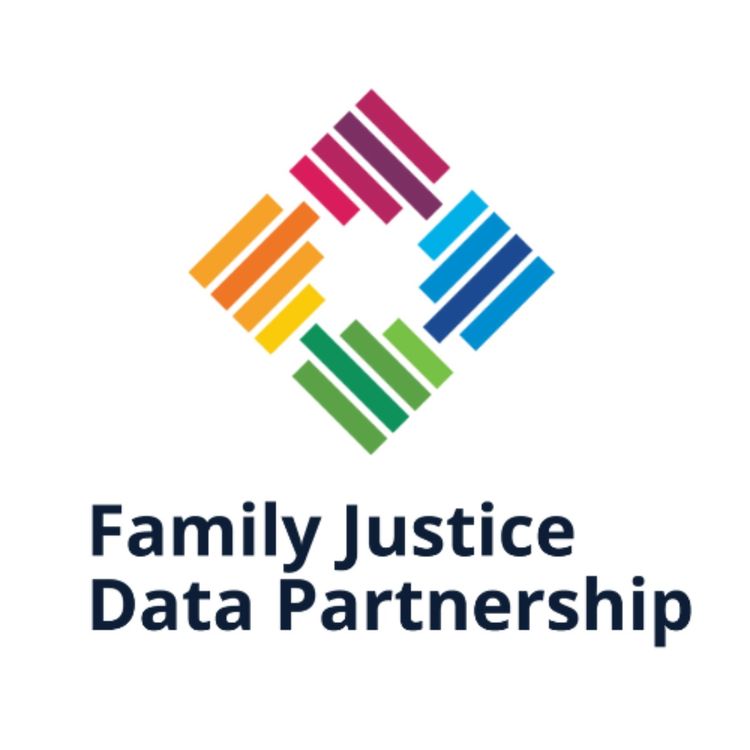Share

What Lies Behind the Statistics?
Mothers in Recurrent Care Proceedings
Season 1, Ep. 1
•
Karen Broadhurst invites Cecily Atkinson to share her views on what more the family justice system can do to prevent, rather than entrench women's vulnerability, given new findings about persisently high rates of recurrent care proceedings.
Find the full report about women in recurrent care proceedings here
More episodes
View all episodes

7. Private Family Law - debunking the myths
28:39||Season 1, Ep. 7This episode in our podcast series turns the attention to private family law – which involves applications made to the courts to resolve disputes about arrangements for children, mostly between parents after separation or divorce. Linda Cusworth, who leads the private law stream of work for the Family Justice Data Partnership (funded by the Nuffield Family Justice Observatory), speaks to colleague Claire Hargreaves and to Anna Sinclair, Head of Private Law Reform for Cafcass Cymru. They talk about the role of Cafcass Cymru in private family law proceedings, discuss some of the research that has been undertaken in this area and how these new findings have challenged a number of challenges and misconceptions, and address the implications for policy and practice. All the research discussed can be found on the project website - https://www.cfj-lancaster.org.uk/projects/fjdp or https://www.nuffieldfjo.org.uk/.
6. From Numbers to Hope
22:21||Season 1, Ep. 6The Family Justice Data Partnership has been producing statistics which have raised searching questions about the increasing numbers of babies subject to care proceedings at birth, prompting questions and what we can do to lessen the trauma this causes for everyone concerned. In this podcast, we listen to colleagues talking about the Hope Box project - a therapeutic intervention designed to help mothers who are separated from their babies at birth. The Hope Box project is designed by mothers with lived experience of child protection and care proceedings at birth.
5. Ethnic diversity in the family courts – the value of data
24:41||Season 1, Ep. 5The Family Justice System serves a diverse population of families and their children. Having clear data on the ethnic backgrounds and experiences of those coming through the family courts helps to identify biases or disparities which in turn can guide reforms or training to ensure all groups are treated fairly and equitably, regardless of their ethnicity. Claire Hargreaves, Senior Researcher at the Centre for Child and Family Justice Research hosts a conversation with colleagues Bachar Alrouh and Mariam Abouelenin about the progress that has being made nationally to collect data on the ethnicity of children and adults in the family courts. The conversation will also address some of the more critical questions that have been raised about whether statistics can in fact play a part in uncovering inequalities. Speaking directly to concerns about the contribution of statistics, Claire, Bachar and Mariam Critics consider whether the broad analytical categories favoured by statisticians, do in fact reflect the diversity of our populations.
4. Born Into Care in Blackpool
28:48||Season 1, Ep. 4Claire Mason, Research Fellow at the Centre for Child and Family Justice Research hosts a conversation with colleagues, Pauline, Amelia and Reuben, who share the excellent work that is going on in Blackpool Borough Council (BBC) to address high rates of infants coming into care in Blackpool.Pauline describes the journey alongside parents to co-produce a new preventative pathway which speaks to Blackpool's ethos of "Blackpool Families Rock". The podcast illustrates the impact of the initial Born into Care statistics published in 2018 as a catalyst to change, but also the huge potential of co-production to really get close to the power and value of family experience. Amelia and Reuben, early career researchers, also talk passionately about their research work to support BBC on this journey, by uncovering promising research evidence about preventative and therapeutic interventions, as part of Blackpool's Health Determinants Research Collaboration, funded by NIHR. Amelia reminds the audience that 'behind the statistics' about Blackpool - is a town of great people.
3. Area Level Deprivation
15:33||Season 1, Ep. 3The socio-economic context children grow up in is extremely important to their wellbeing. Research has shown that families in deprived areas are more likely to also struggle with family disruption. This podcast, hosted by Dr Laura Cowley, presents research findings on associations between area-deprivation, child social care expenditure and the numbers of children entering s31 care proceedings in local authorities in England and Wales. It draws from work by Dr Stefanie Doebler, Prof Karen Broadhurst, Dr Bachar Alrouh and Dr Linda Cusworth in the Nuffield Family Justice Data Partnership. Publications this podcast is based on will be regularly updated here:Doebler, Stefanie, Bachar Alrouh, Karen Broadhurst, Stuart Bedston, Linda Cusworth, Ashley Akbari, David Ford, and Lucy J. Griffiths. 2021. “Explaining High Rates of Infants in Care Proceedings in Deprived Areas of Wales.” London: Nuffield Family Justice Observatory. https://mk0nuffieldfjo6t5dfm.kinstacdn.com/wp-content/uploads/2021/07/explaining-high-rates-of-infants-in-care-proceedings-in-deprived-areas-of-wales-report-0721.pdf.Doebler, Stefanie, Karen Broadhurst, Bachar Alrouh, Linda Cusworth, and Lucy Griffiths. 2022. “Born into Care: Associations between Area-Level Deprivation and the Rates of Children Entering Care Proceedings in Wales.” Children and Youth Services Review 141 (October): 106595. https://doi.org/10.1016/j.childyouth.2022.106595
2. Mental health among women involved in care proceedings in Wales
10:01||Season 1, Ep. 2In this episode, Dr Linda Cusworth (Lancaster University) speaks to Associate Professor Lucy Griffiths at Swansea University about information available within the Secure Anonymised Information Linkage Databank, how data was used for her research, and findings related to the mental health and other vulnerabilities among women involved in care proceedings in Wales.Find the related reports here:https://www.nuffieldfjo.org.uk/resource/1000-mothers-care-proceedings-wales#downloadshttps://www.nuffieldfjo.org.uk/resource/born-into-care-maternal-mental-health#downloadshttps://www.nuffieldfjo.org.uk/resource/health-vulnerabilities-parents-care-proceedings